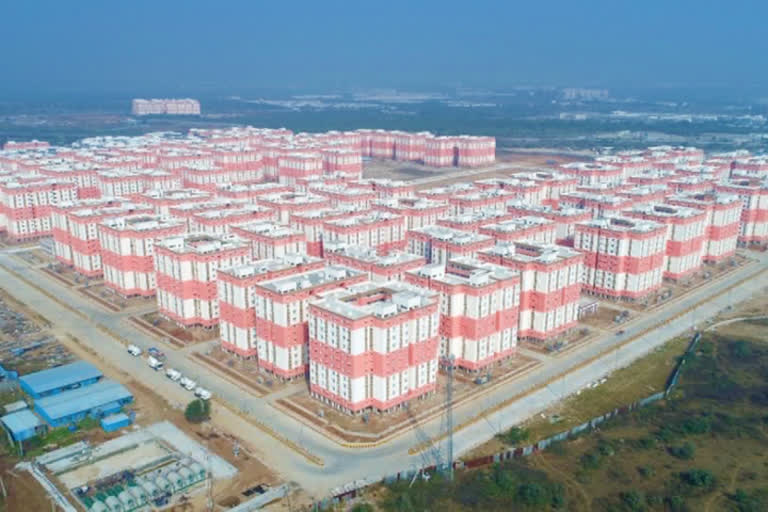Hyderabad: The dignity housing project at Kollur is ready to live up to its name. Considering the number of and kind of facilities provided at the colony, the standard of living of the beneficiaries who move into it, who will be from the below poverty line (BPL) section, will reportedly improve.
The project at Kollur, Ramchandrapuram on the outskirts of the city is one of the biggest ones among the double bedroom (2 BHK) dignity housing projects and is ready for handing over to the beneficiaries. The facilities available at the apartments are reportedly on par with those provided in gated communities.
The GHMC and the Housing Department have constructed the mega project consisting of 15,660 units of 2BHK houses in 117 blocks, along with civic infrastructure facilities, in about 144 acres of land, at an estimated cost of Rs 1,408 crore. Nearly one lakh people can reside in the colony. The state government chose the existing location for the project as Ramchandrapuram and Patancheru are fast developing and happening areas, with many software and IT firms coming up there. As the upcoming firms would need to hire support staff personnel such as technicians, electricians, plumbers, etc, the people who move into the 2BHK houses can take up these jobs.
The buildings have nine, 10, or 11 storeys and are equipped with lifts and fire fighting devices. Each unit has an area of 560 sq ft and has two toilets. As to the social infrastructure facilities, the list of facilities in the colony is long and impressive — parks, open-air gyms, playgrounds, a multipurpose ground, open-air auditorium, commercial complex, community centers, schools, Anganwadi centers, playschools, bus stops, police station, fire station, petrol bunks, integrated hospital, PHC, banks, post office, places of worship, burial ground and cremation centers have been provided.
The civic infrastructure works include piped, potable water supply to each household and an underground drainage system with an STP of 8.5 MLD capacity. Some other facilities have been provided which can facilitate eco-friendly practices. These include recycling of treated sewage water for gardening, rainwater harvesting pits for improvement of groundwater table, and energy-efficient electrical fittings and appliances. Even for the construction of the project, fly ash, and not natural timber, was used to manufacture bricks. The project consultancy work was carried out by Jawaharlal Nehru Architecture Fine Arts University (JNFAU).
